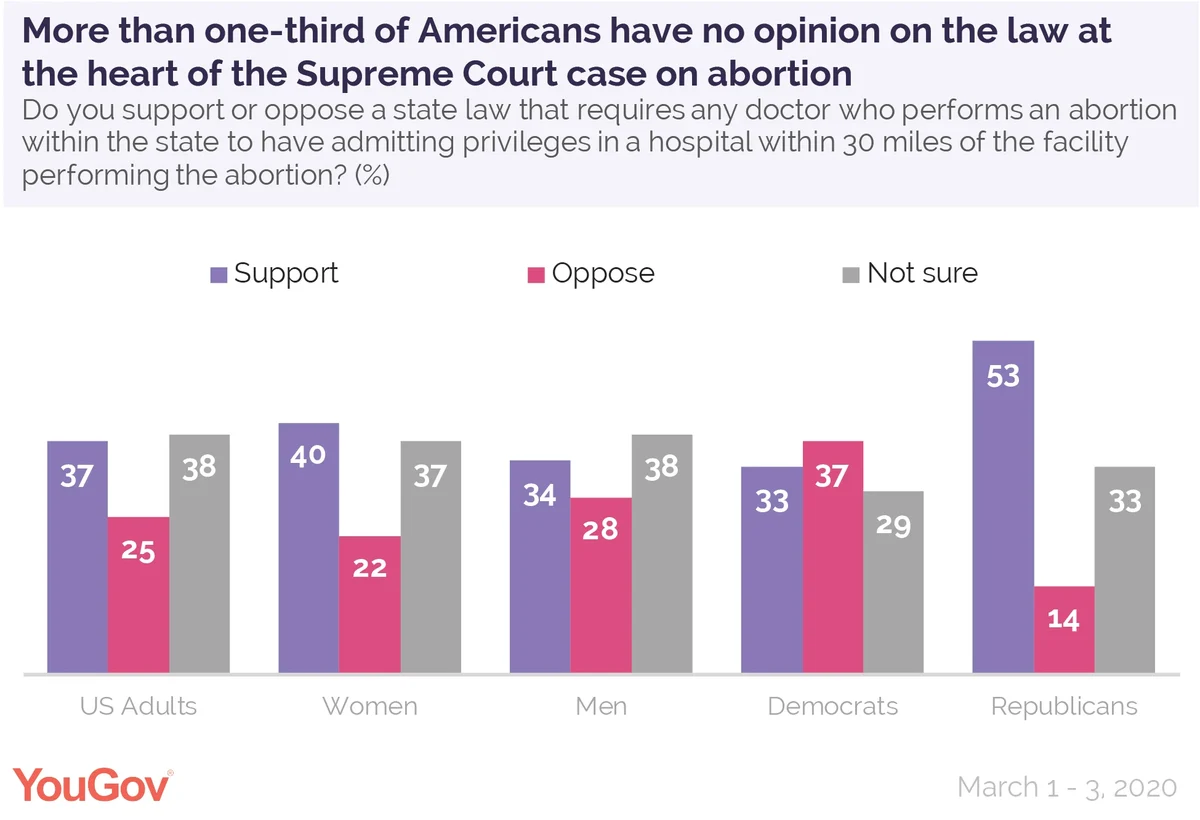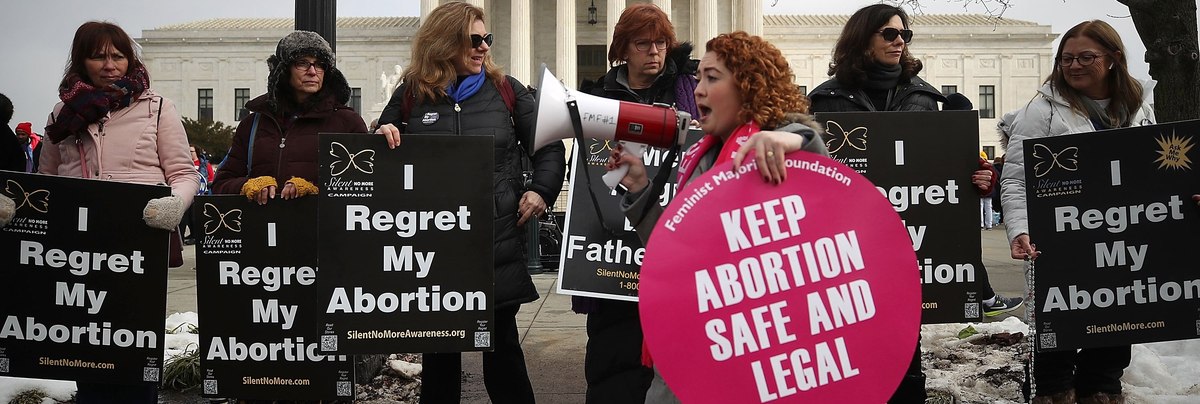Americans have always been divided about abortion. The vast majority want it available, at least for some women, but partisans are passionate about their positions.
Opinion on this issue, which just became the focus of Supreme Court arguments in June Medical Services v. Russo, hasn’t changed much. Polling was conducted before the case was argued last week.
The latest Economist/YouGov Poll finds women far more supportive than men of abortion access, though some of the difference can be attributed to partisanship (as the gender division between the parties has become larger, the issue has developed a gender component that had not been as clear-cut in the past.)
Among partisans, gender differences exist as well. More than a quarter, or 27 percent, of GOP women say all abortions should be illegal as compared with 17 percent of GOP men. Democratic women are slightly more likely to support abortion rights, though most Democratic men do, too. Independent women are more likely than independent men to support abortion access.
Religion explains a lot about abortion opinion. Two-thirds of people who say religion is very important in their lives believe abortion should be illegal in all or most cases – with a quarter wanting to outlaw it entirely. Very religious men and women are equally likely to want to outlaw abortion entirely, though four in 10 women who say religion is very important in their lives would allow most abortions. A third of very religious Protestants would ban all abortions, compared to 21 percent of very religious Catholics.
The actual Court case at issue doesn’t directly challenge Roe v. Wade, the 1972 opinion that limited any regulation of abortion through the second trimester. But the nature of the argument has raised the possibility that the Court could overturn Roe v. Wade. The current case involves a Louisiana law that requires doctors who perform abortions to have admitting privileges in a hospital within 30 miles of a clinic where the abortion takes place. To affirm that law, the Court would be required to overturn a 2016 decision on an almost identical Texas law.
More than a third of Americans have no opinion on the current case, though more are positive about the Louisiana law than oppose it.

Opinion about the Court itself is evenly divided, 39 percent favorable to 39 percent unfavorable. By two to one, Democrats express unfavorable views, Republicans are favorable by three to one. The confirmation of the newest Justice, Brett Kavanaugh, cemented an apparently conservative majority (though self-identified conservatives aren’t at all sure that the Court is like them ideologically: 41 percent of conservatives believe the Supreme Court is ideologically moderate compared with 27 percent of conservatives who say the Court is also conservative).
Kavanaugh, whose contentious confirmation hearing in 2018 became a midterm election issue, is the Justice Kavanaugh is both the least-liked among Democrats, and the most liked among Republicans. Justices Ruth Bader Ginsburg and Sonia Sotomayor receive the highest scores of all the Justices among Democrats, and the most negative ratings from Republicans. A few weeks ago, President Donald Trump tweeted the two should recuse themselves from any “Trump or Trump-related cases.”
In January, prior to the president’s tweet, less than half of Republicans had an unfavorable opinion of Sotomayor. Now, more than two-thirds do. Ginsburg’s unfavorable rating is up 10 points since January among Republicans.
Related: America doesn’t want Roe v. Wade overturned
Read the full toplines and tables results from this week’s Economist/YouGov poll
Image: Getty















